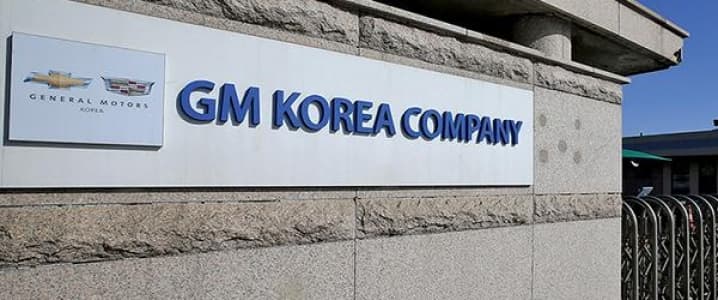General Motors CEO Mary Barra promotes her company as the leading automaker of the future — with shared, autonomous, electric rides becoming the norm.
For GM, its new Maven car-sharing division had provided high hopes for moving into a business model beyond manufacturing and selling gasoline- and diesel-powered vehicles. Now the company is closing down Maven in eight cities to make up for cash lost in the process.
Maven is considered a car-sharing brand with much potential for competing with Avis’ Zipcar and Daimler’s Car2go market leaders. Its owner had expanded Maven to 17 metro markets in the US and Canada since the beginning of 2016. Last week, the message took a turn, with GM announcing a “shift in strategy” that included closing stores in eight US cities to shift focus on other areas with "the strongest current demand and growth potential," the company said.
GM has even more interest in autonomous, electric vehicles in the future and providing ride services through a business unit — such as Maven customers having access to autonomous Chevrolet Bolt electric cars. But these mobility services are still way off in the future. For now, selling cars, trucks, SUVs, and crossovers with internal combustion engines is the profit center.
In the first quarter of this year, GM reported vehicle sales being down 7 percent over the Q1 2018. The global auto giant was pleased to tell shareholders that it had higher-than-expected profits during the first three months of 2019, through cutting costs and selling more expensive trucks, SUVs, and crossover vehicles. Sales of trucks, SUVs, and crossovers made up about 80 percent of its sales. Average transaction prices for GM’s light-duty pickups were $8,040 higher compared to what these trucks delivered in the first quarter of last year. Related: Why EVs Can’t Do Without Oil
Competitors are seeing similar realities, such as Ford shutting down its Chariot shuttle service unit, a startup purchased in 2016 with high hopes in providing profitable mobility services. Subscription programs are expected to be part of selling mobility services of the future. BMW has adjusted the pricing and tiers of its subscription program, mostly from increased competition from Mercedes-Benz. BMW of North America CEO Bernhard Kuhnt said that the company could go either way with its subscription service, perhaps getting out of that business.
Automakers, especially those based in Germany, are committed to taking on Tesla’s lead in the EV market, and investing in mobility services and autonomous rides of the future. Tesla has tied its electric, autonomous vehicles as fundamental to its future — but fatal crashes tied to its Autopilot semi-autonomous feature, and shareholders losing interest in its stock, has created an eye opener for the EV company.
Automakers are making serious moves to stay well positioned in the global auto market, as evidenced by Fiat Chrysler Automobiles preparing to merge with French giant Renault. Renault and its Nissan alliance partner are well known for selling EVs and testing out autonomous rides. For now, though, companies such as FCA and Renault are taking long hard looks at consolidating global production and sales for higher profit margins and to weather more market shakeups in years to come.
The big question of when autonomous vehicles will be allowed by government to enter its roads has yet to be answered. California continues to be the bellwether market for testing these self-driving vehicles. While China wants to beat the US and other countries as the global leader in autonomous rides, California has been important enough to send several companies to the state for road testing and validation. Related: The Single Biggest Challenge For The Oil & Gas Industry
When looking at data on test miles driven in California last year, it’s clear that Alphabet’s Waymo unit and GM’s GM Cruise division are leaders in road testing. Apple, Uber, and autonomous startups are also taking the market very seriously.
California is one of 29 states, joined by governor executive orders from 11 other states, that have enacted legislation related to autonomous vehicles. Yet none of them, nor other countries around the world, have made it clear when autonomous passenger and commercial vehicles will be allowed to enter its roads next to human-driven vehicles.
The questions have yet to be answered — such as who will be responsible when fatal crashes occur during autonomous rides. The key stakeholders have to be won over — and that includes car buyers, fleet operators, government agencies, and legislators.
By Jon LeSage for Oilprice.com
More Top Reads From Oilprice.com:
- Floods Threaten America’s Largest Oil Hub
- Only 10% Of U.S. Shale Drillers Have A Positive Cash Flow
- The Second Machine Age Could Crash Oil Prices


















